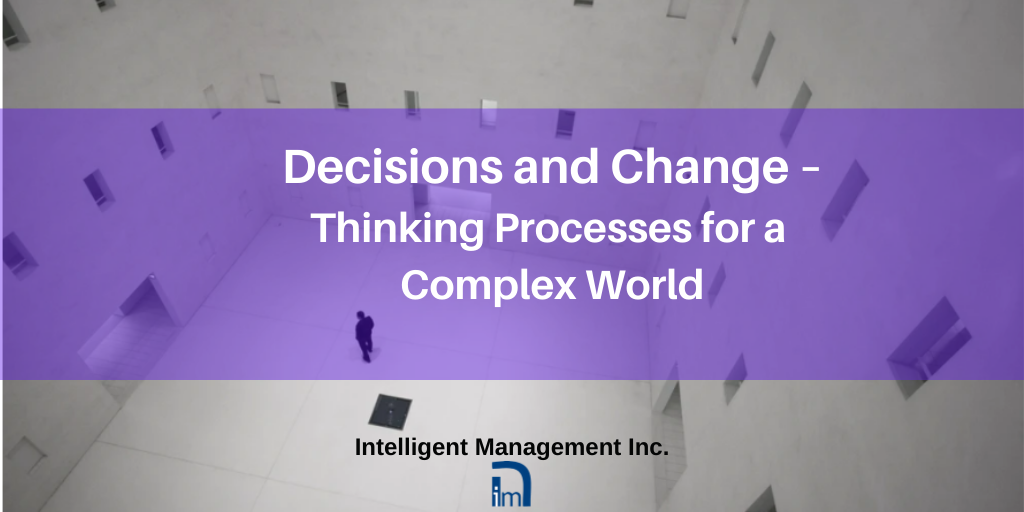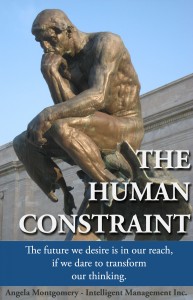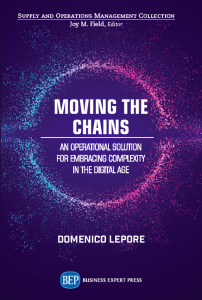
Why is the world today so complex? Because interconnections and interdependencies multiply at an ever-increasing speed. On top of this, we struggle to understand how this new kind of reality works. Every day, we participate in a super intricate ‘network of networks’ but we have a very limited understanding of the underlying properties of these networks and the laws that govern them. At the same time, we have unprecedented access to information. While it is useful, information is not the same thing as knowledge, and only knowledge can actually change us.
It makes little sense to try and make decisions and approach change without taking into account that we are part of a reality that unfolds and develops in a way that is very different from just 50 or even 20 years ago.
Fortunately, it is possible to transform the way individuals and organizations make decisions and pursue their goals so they can navigate better the complexity we are all immersed in. That possibility is connected to a new and more powerful ability to use the three faculties of the intellect connected with intuition (birth of an idea), understanding (analysis/development) and knowledge (application/execution). When we tap into these largely unexploited faculties, we increase our ability to leverage a higher, systemic intelligence, and our ability to learn and act coherently with this learning.
The issues then become:
- how can I fortify my intellect?
- how can I develop a better ability to generate intuition, understanding and knowledge?
- is there a practical way of doing it?
Gaining a better, more disciplined handle on the way we think, speak and act requires a non-negligible effort. This effort can be fuelled and sustained only if the achievement of this new mastery addresses simultaneously the two main needs that both individuals and organizations have (as we saw in our previous post): control and vision.
Thinking Processes to support change
Thanks to the work of Israeli physicist, Dr. Eli Goldratt, there is a powerful set of Thinking Processes that can help us manage the change process. When we use these Thinking Processes systematically and thoroughly, we create manageable change while fortifying our intellect in a positive, reinforcing cycle. The more we use the Thinking Processes, the better equipped we are for change and the more we stimulate intelligent emotions and the kind of higher intelligence we need to cope with our complex reality.
These Thinking Processes are part of the Theory of Constraints (TOC) and have been described in many of our publications, including Deming and Goldratt: The Decalogue, Lepore & Cohen, 1999, Sechel, Domenico Lepore, 2011 and more recently ‘Quality, Involvement, Flow’ 2016 and ‘Moving the Chains’ 2019. The Thinking Processes are connected with the three main phases of change:
- what to change
- what to change to
- how to make the change happen
For each of these phases, there are Thinking Processes that take us from an in-depth analysis through to step-by-step actions to make the desired change happen in an emotionally intelligent and logically thorough way. We will look at how to match these phases and Thinking Processes in our next post.
From this series on Change:
Why Is Managing Change So Hard and How Can We Make it Easier?
Effective Decision Making? Understand Your Driver Needs First
Contact: intelligentmanagement@sechel.ws
SCHEDULE AN INTRODUCTORY CALL WITH US







Leave a Reply